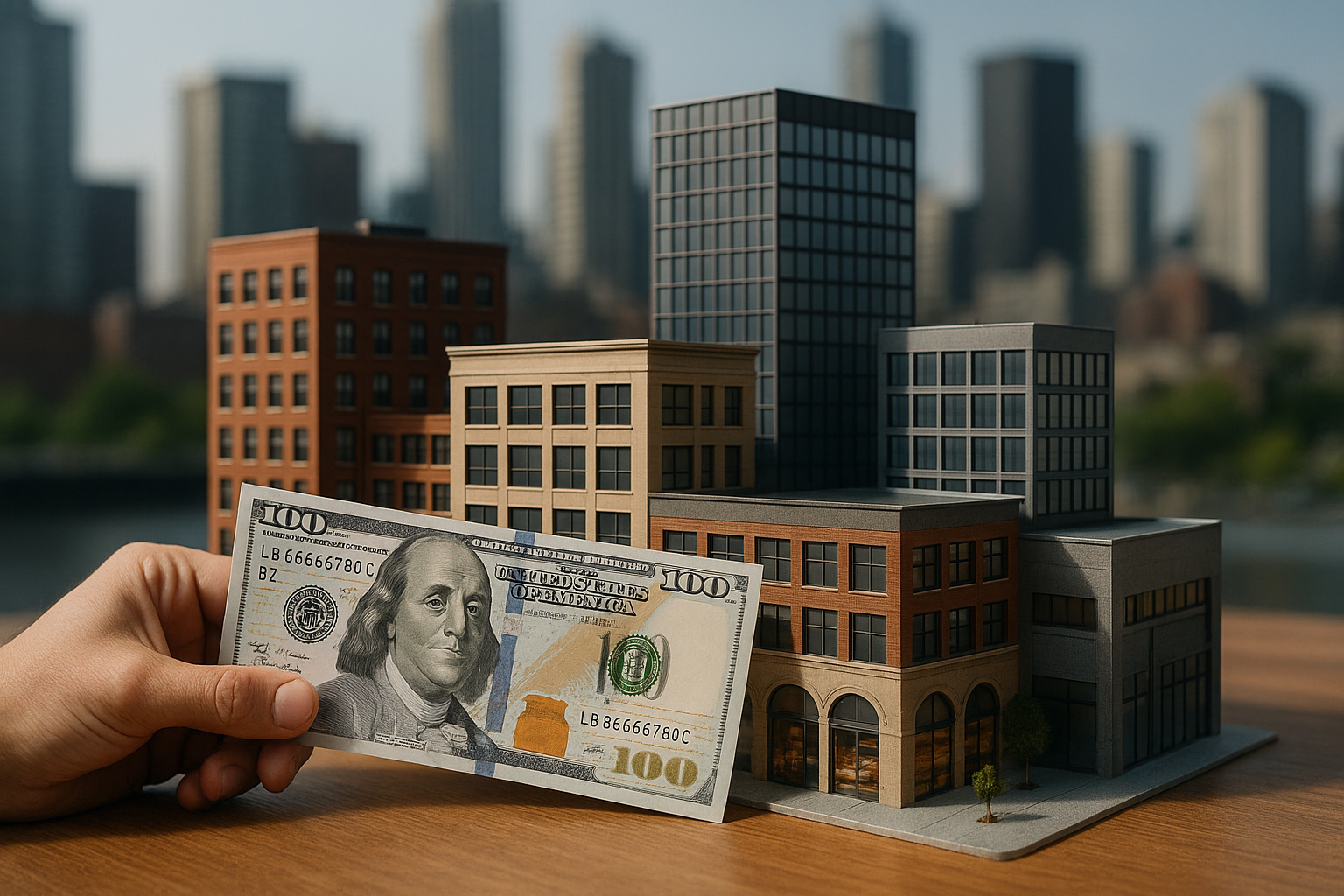Mastering Dubai's Booming Real Estate and Business Sectors: A Strategic Guide
Dubai stands as a beacon of economic growth in the Middle East, with its dynamic real estate and business sectors attracting global investors and entrepreneurs. The city's strategic location and business-friendly environment make it a prime target for anyone looking to expand their global footprint. Whether it's exploring how to start a real estate business in Dubai or securing an escrow account in Abu Dhabi, understanding the regulatory landscape is crucial. Here's a comprehensive guide to the city's real estate and business environment.

Strategic Business Zone Development Reshapes Dubai’s Landscape
Dubai’s approach to urban planning has always been ambitious, but the recent focus on integrated business districts represents a paradigm shift in how commercial real estate drives overall market growth. The Dubai International Financial Centre (DIFC) expansion and the emergence of new business hubs like Dubai South have created micro-economies that significantly impact surrounding residential property values.
The government’s Vision 2071 initiative has accelerated the development of specialized business zones, each designed to attract specific industries. The Dubai Internet City expansion has drawn technology companies, while the Dubai Healthcare City continues to grow as a medical tourism destination. These developments don’t just create jobs; they generate sustained demand for nearby residential properties, creating a ripple effect that benefits investors across multiple property types.
Recent data shows that properties within a 5-kilometer radius of major business districts have appreciated 20-30% faster than those in purely residential areas. This trend has prompted developers to rethink traditional residential projects, incorporating mixed-use elements that cater to the growing population of business professionals who prefer living close to work.
Foreign Investment Patterns Transform Market Dynamics
The relationship between Dubai’s business sector growth and foreign investment in real estate has become increasingly sophisticated. Unlike traditional markets where residential and commercial sectors operate somewhat independently, Dubai’s integrated approach has created unique investment vehicles that appeal to international buyers.
European investors, particularly from the UK and Germany, have shown strong interest in properties near established business districts, viewing them as stable long-term investments. Meanwhile, investors from Asian markets, especially India and China, have focused on newer business zones where property prices remain more accessible but growth potential is substantial.
The golden visa program has further complicated traditional investment patterns. Business owners establishing operations in Dubai often purchase residential properties as part of their long-term planning, creating sustained demand that differs from typical speculative investment cycles. This has led to more stable price growth in business-adjacent areas, making them attractive to conservative investors seeking steady appreciation rather than rapid gains.
Currency fluctuations have also played a role, with the dirham’s relative stability against major currencies making Dubai properties attractive hedges for investors from markets experiencing currency volatility. This has been particularly evident in areas surrounding financial service clusters, where international business presence provides additional confidence in long-term value retention.
Infrastructure Investment Creates Compounding Property Benefits
Dubai’s massive infrastructure investments have created a compounding effect where business district developments drive broader property market improvements. The expansion of the Dubai Metro, with new lines connecting business hubs to residential areas, has fundamentally altered property valuations across the emirate.
The Al Maktoum International Airport development at Dubai South exemplifies this integrated approach. Rather than simply building an airport, planners created an entire business ecosystem that includes logistics, aviation services, and related industries. Properties in surrounding areas have benefited from both employment opportunities and infrastructure improvements, with some areas seeing 40% appreciation since major construction milestones were achieved.
Road infrastructure improvements supporting business districts have had similar effects. The expansion of Sheikh Zayed Road and new connecting highways haven’t just improved business accessibility; they’ve opened previously less desirable residential areas to development and investment. Areas like Al Barsha and Jumeirah Village Circle have transformed from peripheral locations to desirable addresses partly due to improved connectivity to business centers.
Water and power infrastructure supporting major business developments has also enhanced residential property values in surrounding areas. The reliability and capacity improvements required for large-scale commercial operations benefit nearby residential communities, making them more attractive to both residents and investors.
Rental Market Evolution Reflects Business Sector Growth
Dubai’s rental market has evolved significantly in response to business sector expansion, creating new opportunities for property investors focused on rental income rather than capital appreciation. The traditional model of long-term residential leases has given way to more diverse rental arrangements that reflect the changing nature of business in Dubai.
Short-term corporate housing has become a significant market segment, particularly in areas near major business districts. Companies relocating employees or establishing temporary operations often prefer furnished, serviced accommodations over traditional hotels. Properties within walking distance of business centers command premium rents for these arrangements, with some investors reporting yields 30-40% higher than traditional long-term rentals.
The co-working trend has also influenced residential rental patterns. Many business professionals working in flexible or remote arrangements prefer residential properties with dedicated office spaces or easy access to co-working facilities. This has driven demand for larger apartments and villas in business-adjacent areas, pushing rental rates higher across multiple property types.
Seasonal rental patterns have shifted as well, with business-related travel creating more consistent year-round demand compared to tourism-dependent areas. Properties near business districts maintain more stable occupancy rates, providing investors with more predictable rental income streams.
Future Market Projections and Investment Strategies
Looking ahead, Dubai’s business sector expansion shows no signs of slowing, with several mega-projects scheduled for completion through 2030. The Expo 2020 site transformation into District 2020, a permanent business and residential community, represents the scale of ongoing development that will continue driving property market growth.
Investors should focus on emerging business zones where infrastructure development is planned but not yet complete. Areas like Dubai Creek Harbour and Mohammed Bin Rashid City offer significant upside potential as new business facilities come online. However, timing is crucial, as the optimal investment window often occurs during the planning and early construction phases rather than after completion.
The healthcare and education sectors present particular opportunities, as Dubai’s positioning as a regional hub for these services continues strengthening. Properties near planned medical or educational facilities often appreciate significantly as these developments progress from concept to operation.
Technology sector growth will likely concentrate in specific zones, making targeted investments in these areas potentially very rewarding. However, investors should carefully research which technology sub-sectors Dubai is prioritizing, as government support and infrastructure development will favor specific industries over others.
Diversification across multiple business-adjacent areas remains the most prudent strategy for most investors, as it provides exposure to Dubai’s overall business growth while reducing risk associated with any single sector or development project.




